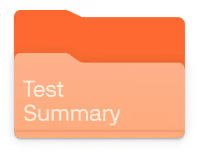
Key Benefits
- See how well your kidneys filter waste, independent of muscle mass.
- Confirm or rule out chronic kidney disease when creatinine eGFR is borderline (45–59).
- Clarify kidney function when muscle mass, diet, or age make creatinine unreliable.
- Guide safer dosing of medicines cleared by the kidneys.
- Flag cardiovascular risk tied to reduced filtration, enabling earlier prevention steps.
- Explain fatigue, swelling, or high blood pressure by detecting reduced filtration.
- Track kidney function trends more precisely by adding cystatin C to creatinine estimates.
- Best interpreted with urine albumin, creatinine eGFR, and your symptoms.
What is Cystatin C (with eGFR)?
Cystatin C is a small, housekeeping protein made at a steady rate by nearly all cells (a cysteine protease inhibitor produced by nucleated cells). It circulates in the blood and is freely filtered by the kidney’s glomeruli, then taken up and broken down by the proximal tubules. Because it is produced consistently and cleared almost entirely by filtration, its blood level closely mirrors the kidneys’ filtering activity. “With eGFR” means the cystatin C result is used to calculate an estimated glomerular filtration rate (eGFR), a standardized estimate of kidney filtering capacity.
Its main significance is as a clean readout of kidney function (glomerular filtration) that is less influenced by muscle mass, body size, or diet than creatinine. A cystatin C–based eGFR helps depict true filtration efficiency across a wide range of ages and health states and can clarify kidney function when creatinine-based estimates are uncertain. In short, cystatin C—and the eGFR derived from it—provides a precise, physiology-based window into how effectively your kidneys are clearing the blood.
Why is Cystatin C (with eGFR) important?
Cystatin C is a small protein made by all cells and cleared almost entirely by the kidneys’ filters. Pairing it with an eGFR (estimated glomerular filtration rate) turns one blood draw into a window on how well you regulate fluid, electrolytes, acid–base balance, toxins, hormones, and blood pressure—functions that ripple across the heart, brain, vessels, and metabolism.
In healthy kidneys, cystatin C tends to sit in a low, narrow reference range, and eGFR sits high. Because cystatin C is far less influenced by muscle mass and diet than creatinine, cystatin C–based eGFR is especially helpful in older adults, people with low or high muscle mass, and children. With aging, small shifts upward in cystatin C and downward in eGFR are common.
When cystatin C is lower than usual, it most often reflects very efficient filtration (a higher eGFR). People usually feel well. Transient hyperfiltration can occur in growth and early pregnancy; in children, maturing kidneys and changing body size make cystatin C particularly useful for tracking “true” filtration.
Higher cystatin C, especially when paired with a lower eGFR, indicates reduced filtering capacity. You may notice swelling, fatigue, rising blood pressure, nighttime urination, or foamy urine; over time this can drive anemia, mineral–bone changes, cardiovascular strain, and cognitive effects. In both men and women, elevated cystatin C also tracks with higher cardiovascular risk, independent of creatinine.
Big picture: cystatin C anchors a more muscle‑independent view of kidney function. Used with eGFR, it refines chronic kidney disease staging, medication dosing decisions, and cardiovascular risk assessment, linking renal filtration to vascular health, metabolism, and long‑term outcomes.
What Insights Will I Get?
Cystatin C is a small protein made by all cells and cleared almost entirely by the kidneys’ filters (glomeruli). Its blood level tracks how well the kidneys are filtering; the cystatin C–based estimated GFR (eGFRcys) translates that into an overall kidney function estimate that is largely independent of muscle mass. Because kidney filtration underpins waste removal, fluid and blood pressure balance, acid–base control, vitamin D activation, red blood cell production, and vascular health, cystatin C connects directly to energy, cognition, cardiovascular risk, and immune competence.
Low values usually reflect efficient filtration (high GFR) or reduced cystatin C production. This is common in younger healthy adults and in too little thyroid hormone (hypothyroidism). Very low cystatin C with a very high eGFR can occasionally indicate glomerular hyperfiltration, a state of “overworking” filters.
Being in range suggests stable filtration, steady blood pressure and electrolyte handling, and reliable endocrine support from the kidneys. Within the normal interval, values in the lower half generally associate with the most favorable cardiometabolic outcomes, provided eGFR is not pathologically high.
High values usually reflect reduced filtration (lower eGFR) from acute illness or chronic kidney disease. System-level effects can include fluid and blood pressure dysregulation, electrolyte and acid–base imbalance, impaired vitamin D activation and erythropoiesis, and higher cardiovascular and cognitive risk. Levels can also rise with older age, systemic inflammation, too much thyroid hormone (hyperthyroidism), glucocorticoid exposure, higher adiposity, and during pregnancy, sometimes independent of true GFR. Unlike creatinine, cystatin C shows minimal sex dependence.
Notes: Interpretation is influenced by age, thyroid status, inflammation, corticosteroids, and pregnancy. eGFR equations using cystatin C (alone or combined with creatinine) differ by lab and are race-free in newer versions. Acute changes require trend data, and assays vary slightly; compare results from the same laboratory when possible.






.avif)



.svg)





.svg)


.svg)


.svg)

.avif)
.svg)










.avif)
.avif)
.avif)


.avif)
.png)


